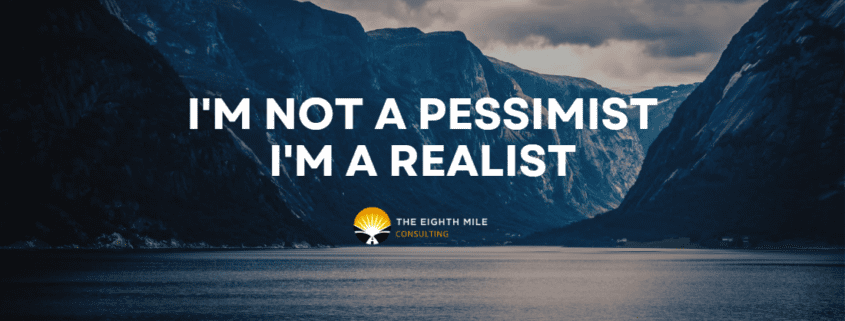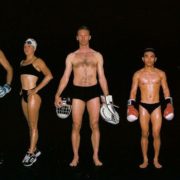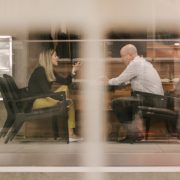We have all heard someone say, “I am not a pessimist; I am a realist.” It is a phrase that has many different layers to it, and it is definitely a topic worth discussing.
There are many that would argue that the world is a terrible and chaotic place characterised by suffering, confusion, and destruction. In many ways they are right. It is not hard to find mediums depicting the destruction and degradation of our societies. If one were actively looking it would take them less than 10 seconds and would probably be as easy as turning on the news. These people often self-characterised as ‘realists’ would reasonably argue that there is no point in burying one’s head in the sand, and that we should deal in facts, however uncomfortable that might be.
On the other side of the coin there exists a group of people, often called ‘optimists’ who seemingly do not care about the impending doom approaching them, and it would appear to external observers that they are living in blissful ignorance. These people are often characterised as blasé and Laissez-Faire. Some look at these people and become frustrated at their lack of involvement or seriousness in the situations around them. They can even come across as non-committal or immature. What adds salt to a realist’s wounds is that these people often live up to 12-15 percent longer than our aforementioned group.
Friction occurs between these two groups because they are often speaking a different language. Conversations become disjointed as both parties are approaching the detail from different existential viewpoints. Add to the mix people’s ego and pride and we have the perfect concoction for an impassable roadblock.
Like most things in life, finding commonality requires a genuine willingness to listen and learn. It must also be nested alongside an admission that every interaction is an opportunity for growth.
You will find what you are looking for (“confirmation bias”)
Earlier we identified that it would not be difficult to find examples of the world in disrepair if someone were actively looking, and this is true. But what if we chose to actively look for the positive things as well? What if we accepted that the world is one of a balancing act between good and bad things simultaneously?
It is not difficult to find evil things. It is much harder to find positive and admirable things. But, does it have to be? Or is that a choice we make? Is it actually harder, or do we make it harder by releasing ourselves of our ownership of how we react to what happens around us that affects us?
“Confirmation bias is the tendency to search for, interpret, favor, and recall information in a way that confirms or supports one’s prior beliefs or values.” – Wikipedia
We are all guilty of confirmation bias and it takes a significant amount of discipline and self-awareness to consider that our brains are often seeking to validate our already existing belief structures. This is not good when you are seeking to find commonality with others.
We must enter every discussion with an understanding that we likely have something to learn.
Re-framing and empathy
We find commonality with others when we genuinely seek to learn their perspective. What we often find is that both parties are simultaneously right and wrong at the same time, and the distinguishing feature was context and perspective. For example, challenging questions to an optimist:
- What challenges do you think you might encounter which could slow your progress toward your goals?
- Have you encountered other challenges in the past that you had to overcome, and how did you do it?
- Do you have a set of tools in your tool kit to deal with those challenges, to help you overcome them?
- Who could you partner with to help you overcome your challenges?
Challenging questions to a realist:
- Do you know anyone else who has had this or a similar problem and has overcome it?
- Do you know if this has ever been done before?
- What do you think is different between the example that was successful, and your situation which you believe cannot be?
- Do you believe it is worth it for you to try to overcome this challenge?
It takes a level of discipline to pull yourself out of your own narrative and forcibly see the world through another lens. Your perceptions of other groups run a risky prospect of categorising everything they say as silly, irrelevant, or wrong.
One question we might all ask ourselves: Which is more likely?
Option 1: That they are completely wrong, and I am completely right.
OR
Option 2: We are both partially right and have different pieces of information drawn from different contexts and experiences.
If you are brave enough, you might ask the next question: Am I trying to be right or correct?
Nobody wins a binary argument
The wiser someone gets the more they realise that the world is a complex place. Problems are almost invariably multi-layered and faceted. The temptation is to assume that there is a right answer to every problem, wherein reality it can sometimes be the choice between two or more terrible options. Quite simply we must on occasion, pick the lesser of two evils.
There is a movie starring Harrison Ford from 1994 called “Clear & Present Danger”, in which Harrison Ford plays Jack Ryan (based on Tom Clancy’s series of books.) Jack Ryan is at earlier points in his career quite the do-gooder (and mostly stays that throughout), and in this book, and as reflected in the movie, comes up against Deputy Director CIA Ritter, who is quite the opposite. It’s very much a black-and-white set of characters, and when they finally clash, you have this great scene that details good vs. bad, positive vs. negative, black vs. white, or yin vs. yang…and it’s this: https://www.youtube.com/watch?v=dKsDjpKr2Mk
Ritter explains simply, “Grey. The world is grey, Jack.”
Moving Forward
It is incredibly easy in the short-term to discard people’s opinions by categorising them as a type (pessimist vs optimist), but it rarely bares fruit in the long-term. Moreover, it speaks to an unwillingness to learn new things due to the risks it might have on our existing belief structures.
What is incredibly important to note is that everyone is winging their way through life. In doing so we are all choosing the schema that we think will best support us at that time. What this means in practical terms is that some people are most likely protecting themselves by choosing to frame the world through a ‘realistic’ (or pessimistic) lens, whilst others are trying to find the positives in a world that can otherwise be quite confusing, depressing, and chaotic.
The moment we realise that our choices lead us through problem-solving and onto solutions, then we also realise that there is a choice to learn something from everyone. In doing so, we might end up one step closer to a more refined and balanced opinion.
The moment inevitably comes in our lives when we realize that we have it within our control to choose, if not the problems we face, then at least the tools we make to deal with them. It is then, at those times, that we truly start growing into our most refined and balanced selves. Particularly, when we use the right tools, make robust and informed choices, and begin directing our own path through the chaos of life.
I am not a pessimist; I am a realist- Co-authored: David Neal & David Reed




 The Eighth Mile Consulting
The Eighth Mile Consulting  The Eighth Mile Consulting
The Eighth Mile Consulting 
 The Eighth Mile Consulting
The Eighth Mile Consulting 
Leave a Reply
Want to join the discussion?Feel free to contribute!